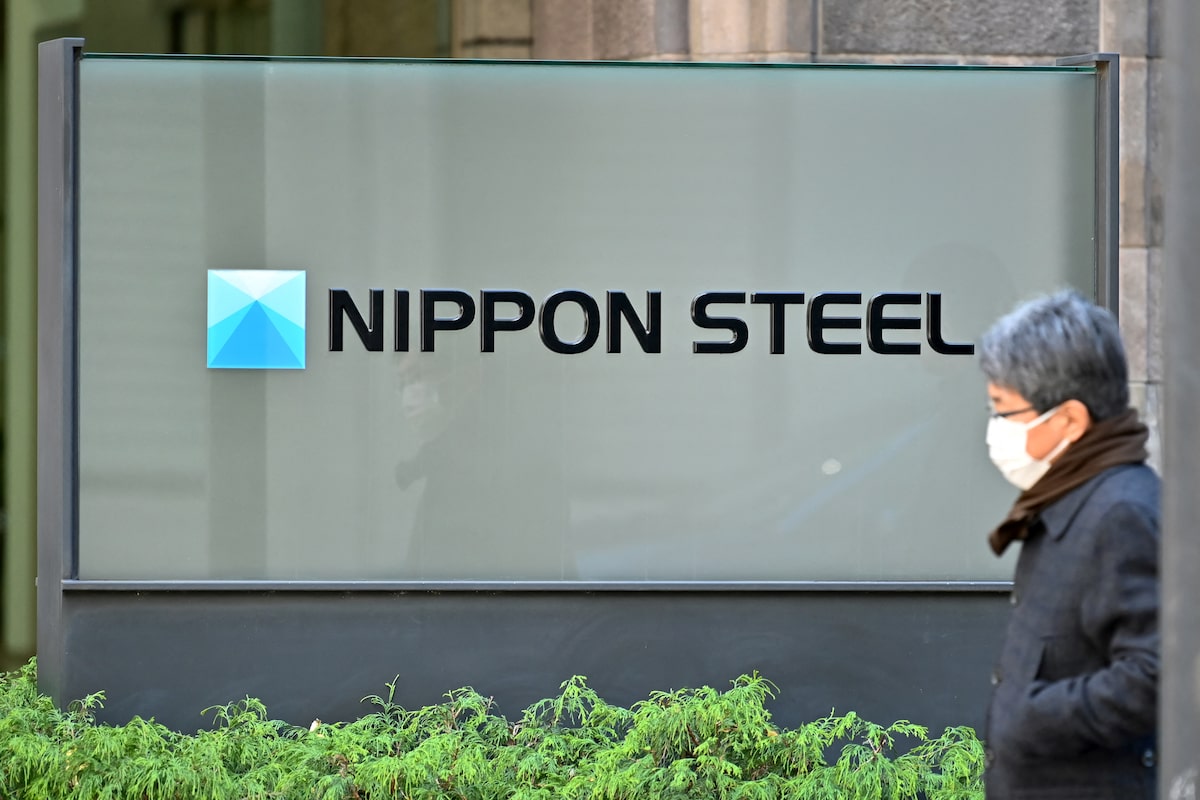Nippon Steel Deal: Trump's Backing Raises Crucial Questions

Table of Contents
The Deal's Details and its Impact on the US Steel Industry
The Nippon Steel deal, while specific details may vary depending on the precise agreement being referenced (as multiple transactions may exist under the broad umbrella), generally involves the merger, acquisition, or significant joint venture between Nippon Steel and other steel companies, potentially impacting the US market. Understanding the specifics is crucial to analyzing its consequences.
The key terms of such deals often involve market share consolidation, technological collaboration, and potentially, changes in production capacity. The impact on the US steel industry is multifaceted.
- Impact on domestic steel production: Increased competition from a strengthened Nippon Steel could lead to reduced output from some US steel producers, potentially resulting in job losses in specific sectors. Conversely, collaborations could lead to new technologies and enhanced efficiency.
- Changes in steel prices for consumers and businesses: The deal’s effects on steel pricing are uncertain and depend greatly on market dynamics. Increased competition could lead to lower prices, benefiting consumers and businesses. However, reduced competition could lead to price increases.
- Potential for increased market share for Nippon Steel: Successful integration into the US market could significantly expand Nippon Steel’s market dominance, impacting the competitiveness of domestic players.
- Consequences for smaller US steel companies: Smaller companies may face heightened pressure, potentially leading to mergers, acquisitions, or even bankruptcies in a more competitive landscape.
Trump's Role and its Political Implications
Trump's administration actively supported, or at least did not actively oppose, deals involving foreign steel companies entering the US market. The reasons behind this support are complex and remain a subject of debate.
- Analysis of Trump's public statements on the deal: Public statements made by the Trump administration regarding these deals need to be carefully analyzed to understand the rationale behind any implicit or explicit support.
- Potential conflicts of interest: It’s crucial to investigate any potential conflicts of interest for individuals within the Trump administration concerning deals with foreign steel producers.
- Impact on US trade policy and international relations: The administration's stance on these deals has significant implications for US trade policy and its relationships with other countries, including Japan.
- Political repercussions for Trump and his administration: Trump's actions regarding such deals were used politically, both positively and negatively, reflecting a divisive issue.
Economic Considerations and Long-Term Effects
Analyzing the economic implications of the Nippon Steel deal requires a comprehensive assessment of both short-term and long-term effects on the US economy.
- Economic modeling and predictions: Robust economic models are essential to predict the deal’s impacts accurately. These models need to incorporate various factors, including changes in employment, production, and consumer prices.
- Analysis of consumer price index changes related to steel: Monitoring the Consumer Price Index (CPI) for steel and related products provides valuable insight into the deal's impact on consumers.
- International trade balance implications: The deal’s effect on the US trade balance with Japan and other countries needs careful scrutiny.
- Potential for future trade disputes: The deal could trigger future trade disputes, especially if it's perceived as unfair or detrimental to US interests.
Legal and Ethical Scrutiny of the Deal
The Nippon Steel deal has faced, or may face, significant legal and ethical scrutiny.
- Ongoing legal proceedings related to the deal: Any ongoing legal challenges to the deal must be examined closely.
- Ethical considerations regarding fair trade practices: A crucial consideration is whether the deal adheres to fair trade practices and protects the interests of US steelworkers.
- Potential for corruption or undue influence: Transparency is critical; any suggestion of corruption or undue influence necessitates thorough investigation.
Conclusion: Assessing the Nippon Steel Deal and Trump's Influence
The Nippon Steel deal, bolstered by Trump's backing, presents a complex picture with significant implications for the US steel industry, its economy, and its international relations. Understanding the deal's intricate details, the political motivations behind its support, and the economic and legal challenges it poses is essential. While the short-term benefits may have been touted, the long-term consequences require continuous monitoring and critical evaluation. To gain a deeper understanding of the implications, further research is necessary. Use search terms like "Nippon Steel Deal analysis," "Trump's impact on steel tariffs," or "US-Japan steel trade" to explore the complexities of this significant business transaction and the ongoing debate surrounding government influence in major deals. The continued critical analysis of the "Nippon Steel Deal" remains vital.

Featured Posts
-
 A Looming Canada Post Strike The Threat To Customer Base
May 27, 2025
A Looming Canada Post Strike The Threat To Customer Base
May 27, 2025 -
 Canada Post Strike Concerns Customer Behaviour And Service Disruption
May 27, 2025
Canada Post Strike Concerns Customer Behaviour And Service Disruption
May 27, 2025 -
 Mwed Msabqt Twzyf Bryd Aljzayr 2025 Kl Ma Thtaj Merfth
May 27, 2025
Mwed Msabqt Twzyf Bryd Aljzayr 2025 Kl Ma Thtaj Merfth
May 27, 2025 -
 Top 12 Modern War Movies To Stream Today
May 27, 2025
Top 12 Modern War Movies To Stream Today
May 27, 2025 -
 March Madness 2025 Viewing Guide Best Tv And Streaming Platforms
May 27, 2025
March Madness 2025 Viewing Guide Best Tv And Streaming Platforms
May 27, 2025
